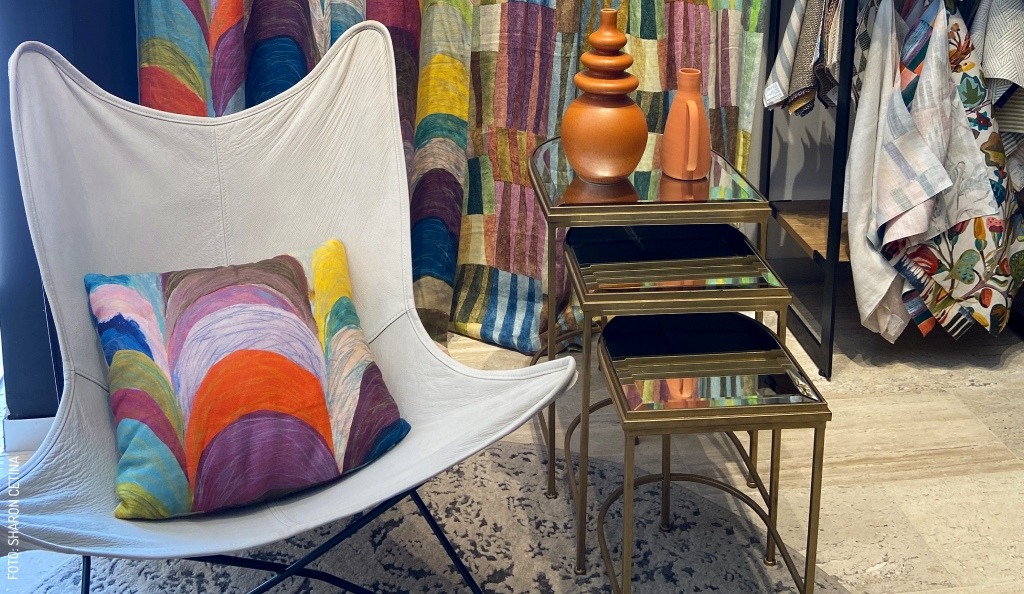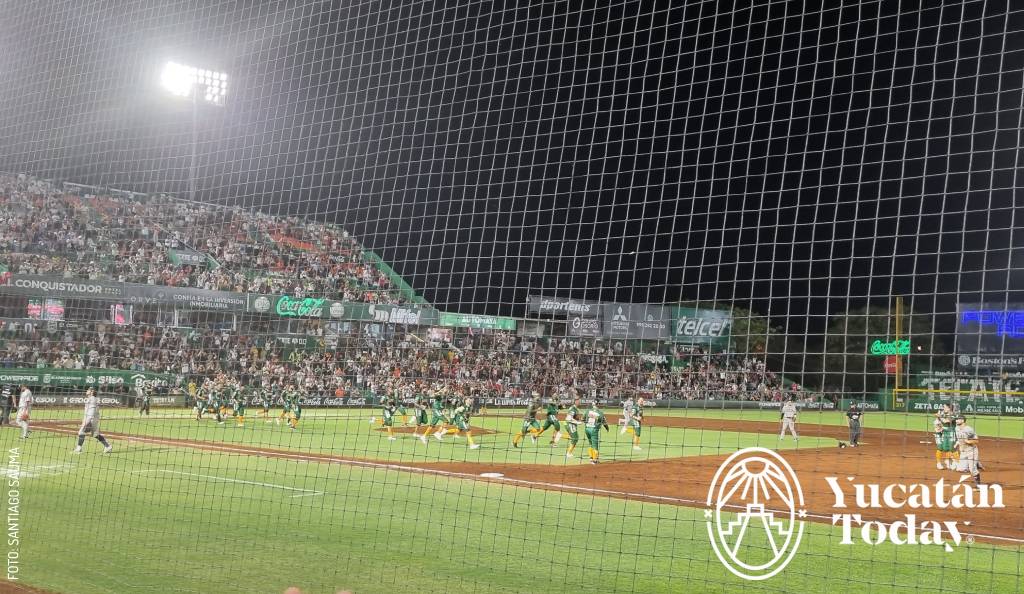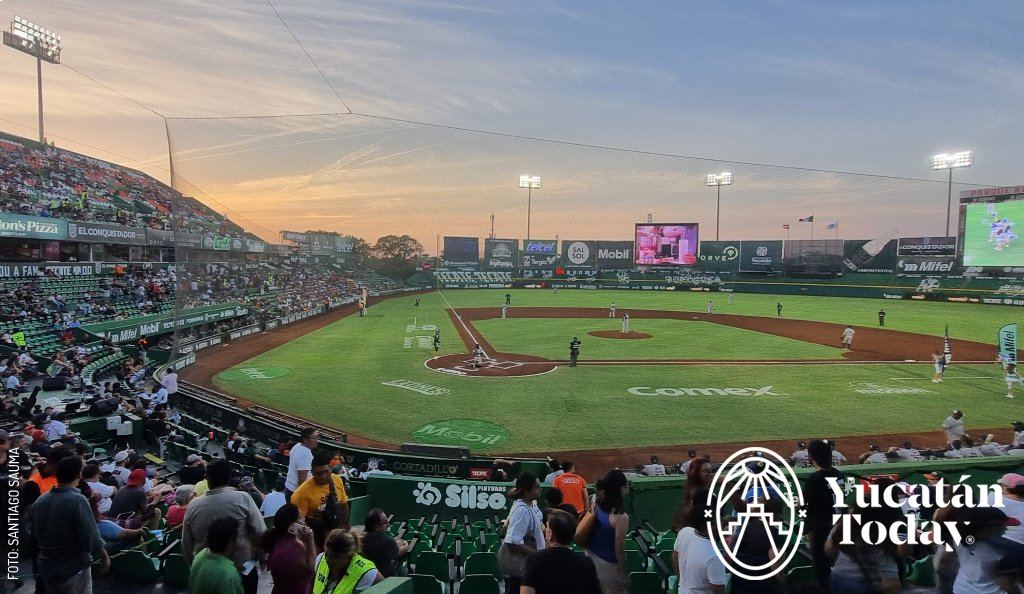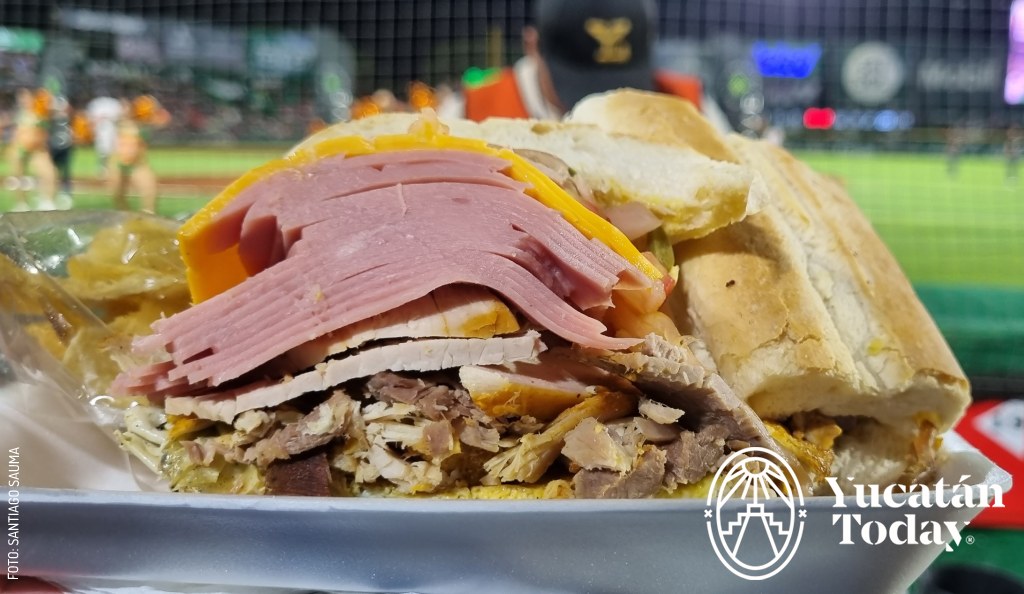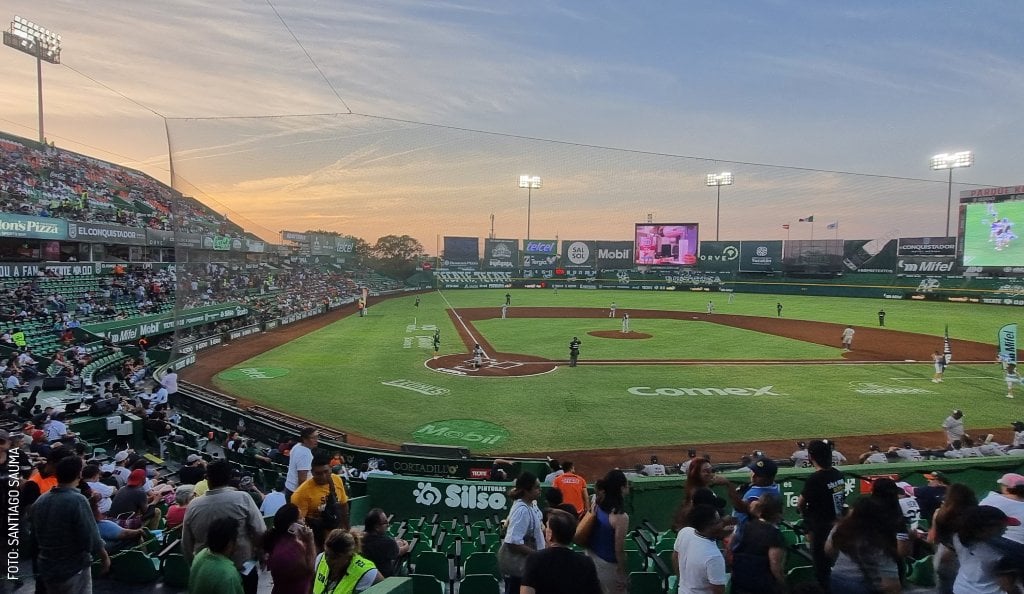
The King of Sports in Yucatán
Judging by what you see on television in México, you might get the impression that people here have fútbol (soccer) for breakfast, lunch, and dinner. However, in Yucatán, the king of sports is the national pastime of the United States: baseball.
Yucatán and Baseball
Here, baseball is a sport that is practiced much more than in other parts of the country. For a long time, and most likely to this day, there have been many more baseball (and softball) fields than soccer fields in the state. In fact, one of the most competitive youth baseball leagues nationwide is the Yucatán League, which includes around 200 teams. We're talking about 2,500 to 3,000 kids who play every weekend in their 20 stadiums. In addition to these enviable facilities, the league (with the support of parents and a large number of sponsors) provides coaches, directors, pitching and batting coaches, complete uniforms each season, etc., to these young athletes, whose ages range from 3 to 16 years old. And this is just one of the many leagues in Yucatán, all of them highly competitive and top-level.
Speaking of the entire country, the most recognized professional leagues are the Liga Mexicana de Beisbol (Mexican Baseball League), which is a summer league, and the Liga Mexicana del Pacífico (Mexican Pacific League), which is played in the winter in northwest side of the country (Baja California, Sonora, Sinaloa, Jalisco, etc.). The Mexican Baseball League is played from April to late July or early August. After that, the postseason begins: the qualifying teams continue playing until they lose. And one of the teams that usually reaches the postseason is the local team and five-time Mexican Baseball League champion: the Leones de Yucatán.
The Leones de Yucatán Baseball Team
If you're a baseball fan, you may wonder about the level of play you could see in México. If we use United States baseball as reference, we could say that the baseball played in the Mexican Baseball League is equivalent to Triple-A baseball. The difference is that, in the United States, Triple-A has many future Major Leaguers in its ranks: prospects who have not yet reached the level to play in the big leagues. The Mexican Baseball League, on the other hand, has many former MLBers. For example, Didi Gregorius, the shortstop who famously replaced Derek Jeter on the Yankees upon his retirement, plays with Algodoneros de Unión Laguna. The Leones, being one of México's elite teams, have always boasted an all-star line-up, and, while the official roster is yet to be announced on April 7, you're sure to catch some famous players when you make your way to the recently renovated Parque Kukulcán stadium.
The Parque Kukulcán Stadium
Twenty-twentyfive will see Yucatecan baseball fans celebrating the king of sports with a bang, as the Leones de Yucatán are coming back home to the Parque Kukulcán stadium. Fully renovated, the venue will offer better, more comfortable seats, more amenities, better accessibility, and the biggest screens in Latin America. The new Kukulcán stadium will also have room for even more fans, which will make it even easier for anyone interested in catching a game to find great seats.
The Atmosphere at Kukulcán Stadium
Perhaps the most noticeable difference between baseball in the United States and in México is the atmosphere in the stadiums. In both cases, it is very family-friendly, but how it is experienced varies considerably. Especially in the upper levels, the atmosphere here is very festive, with music, dancing, drumming, and cheering. There are several “official” cheerleading groups that occupy these stands with drums and trumpets, and they are responsible for keeping the spirits high throughout the entire game. For a less noisy experience, more focused on the game rather than the festivities, it is recommended to choose seats closer to ground level.
Food
As local fan Santiago Sauma tells it, concessions in U.S. stadiums are located between seating levels, which means that if you need to get up to buy something, you can miss anywhere from 20 minutes to an hour of the game. At the Parque Kukulcán Stadium, you won't have that problem, since there are vendors who go row by row throughout the entire game, offering a wide range of snacks that you can buy, from soft drinks and beers to sandwiches, pizzas, Marquesitas (a local sweet treat), sushi, and whatever else you can imagine. The most traditional options at our stadium, in addition to pumpkin seeds and peanuts, are the "Piedras" sold by La Wera (fried dough balls; there are several vendors, but the connoisseurs insist on La Wera’s), the coveted Tortas Manolo's (sandwiches that seem as tall as a three-level cake, made with ham, cheese, pork, turkey, and egg), and the "Pastelitos," which are puff pastries with various fillings such as mushrooms, ham, cream cheese, etc. The new stadium will also feature several full-service bars and restaurants where you'll be able to catch the game in a more exclusive, comfortable setting.
Plan Your Visit to the Lion’s Den (Kukulcán Stadium)
The Kukulcán Álamo Stadium is located within the Kukulcán Sports Complex, southeast of the city. For the games, extensive parking lots are available (at an approximate cost of $20 per event), but it is also quite convenient to go by taxi, rideshare apps, or public transportation. Games usually take place from Tuesday to Sunday, with the Leones typically playing one week at home and one week away (check the schedule to plan your visit). On weekdays, games start at 8 pm; on Saturdays, at 6 pm; and on Sundays, at 5 pm. The gates open an hour and a half in advance, and if you arrive early, you will find activities and prizes from the team's many sponsors. Additionally, those who arrive early have a better chance of getting a signed baseball or even getting an autograph from a player.
What to Wear to Kukulcán Stadium
Many people attend the games wearing jerseys of their favorite national and international teams. The only recommendation is never to wear a Diablos Rojos del México shirt, as it may invite uncomfortable exchanges with the local fans. If you want to dress up in the official merchandise of the current champions, the Leones have physical stores (Leoneshops) in Centro and at Altabrisa shopping mall, as well as another at the stadium itself. If shopping online is more your thing, you can also visit their official store.
Get your tickets to see the lions roar
You can definitely get your tickets at the stadium, and, while some games are naturally more in demand than others, the venue's capacity makes them easy to find even if you decide to drop by last-minute. If you prefer to plan ahead, you can get your tickets in advance at the Leoneshops and online, at https://leones.accesototal.mx. You can also purchase a Manada Pass (manada is the Spanish word for a pride of lions), which allows you to buy your choice of 10, 15, or 20 seats in your preferred section. These seats can be used for a single game or spread across several games, which makes them a great choice if you're planning to go with a larger party or several times throughout the season. Check out the details for the Manada Pass at the Leones' official website.
A Different Experience
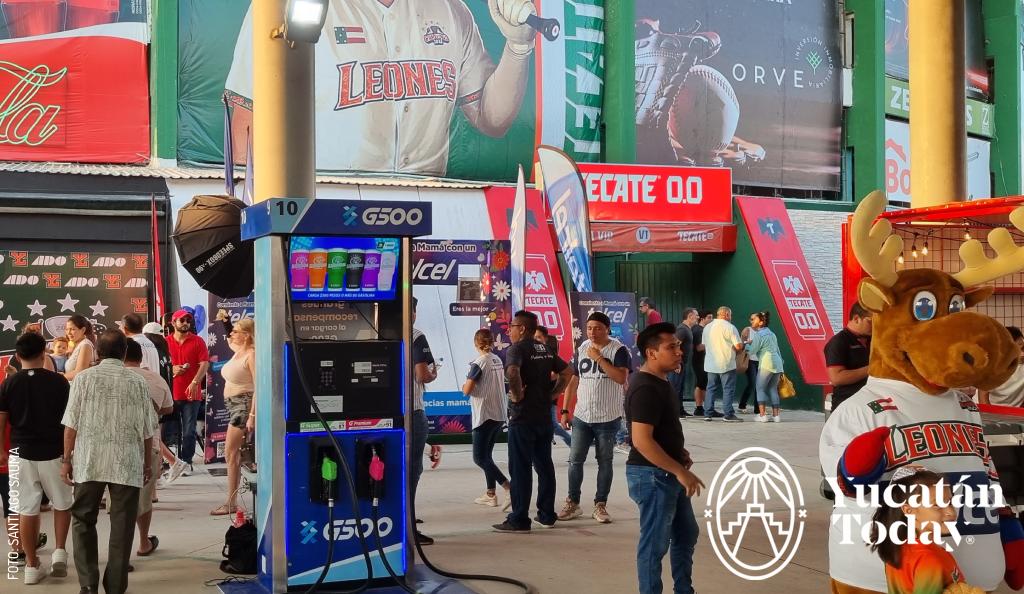 You don't need to go to the Kukulcán Stadium to experience the intensity of Yucatecan baseball. As I mentioned before, there are several leagues throughout the state with tough teams and players who are recruited by municipalities to provide entertainment in areas where there are no options like cinemas or shopping centers. If you attend one of these games, where great quality baseball is also played, don't be surprised if you witness some extravagances, such as a spectator offering a batter a thousand pesos if he hits a home run, or incentivizing the pitcher to strike out the batter by promising them a farm animal after the game. The games take place every Sunday in almost any municipal seat (regardless of the size of the municipality), from Izamal to Cacalchén. Although they are usually scheduled for 12 pm, it's not uncommon for the players to start arriving at that time and for the game to begin after 1 pm. The atmosphere remains family-friendly, but what with the local weather and the wide availability of beer, emotions can get a little more heated. Nonetheless, it is a very entertaining experience, and if you go, you're sure to come away with some anecdotes for posterity.
You don't need to go to the Kukulcán Stadium to experience the intensity of Yucatecan baseball. As I mentioned before, there are several leagues throughout the state with tough teams and players who are recruited by municipalities to provide entertainment in areas where there are no options like cinemas or shopping centers. If you attend one of these games, where great quality baseball is also played, don't be surprised if you witness some extravagances, such as a spectator offering a batter a thousand pesos if he hits a home run, or incentivizing the pitcher to strike out the batter by promising them a farm animal after the game. The games take place every Sunday in almost any municipal seat (regardless of the size of the municipality), from Izamal to Cacalchén. Although they are usually scheduled for 12 pm, it's not uncommon for the players to start arriving at that time and for the game to begin after 1 pm. The atmosphere remains family-friendly, but what with the local weather and the wide availability of beer, emotions can get a little more heated. Nonetheless, it is a very entertaining experience, and if you go, you're sure to come away with some anecdotes for posterity.
As you can see, in Yucatán, people enjoy playing baseball, watching baseball, and talking about baseball. A good way to start a conversation with a Yucatecan will always be to ask them about the latest game or who the standout player is for the Leones right now. However, there's nothing like going to the stadium and living the experience. If you're not a baseball fan, don't worry: arrive with hunger. You might not enjoy the game as much, but you will definitely enjoy the food while it unfolds.
Agradecemos al aficionado y experto Santiago Sauma por su esencial colaboración para este artículo, así como a Felipe Casas (Director de Estrategias) y a Julián Loeza (Gerente de Medios y Comunicación) de los Leones de Yucatán por las facilidades otorgadas para realizarlo.
Our thanks to local fan and expert Santiago Sauma for collaborating for this article, as well as to Felipe Casas (Strategy Director) and Julián Loeza (Media and Communications Manager) for the Leones de Yucatán for their help in making it happen.

Author: Alicia Navarrete Alonso
As a kid I heard that there's more to see than can ever be seen and more to do than can ever be done, so I set out to try. I'm passionate about knowledge and I love to share whatever my own is.
Receive the latest articles and much more from the best of Yucatán in your email!
Related articles
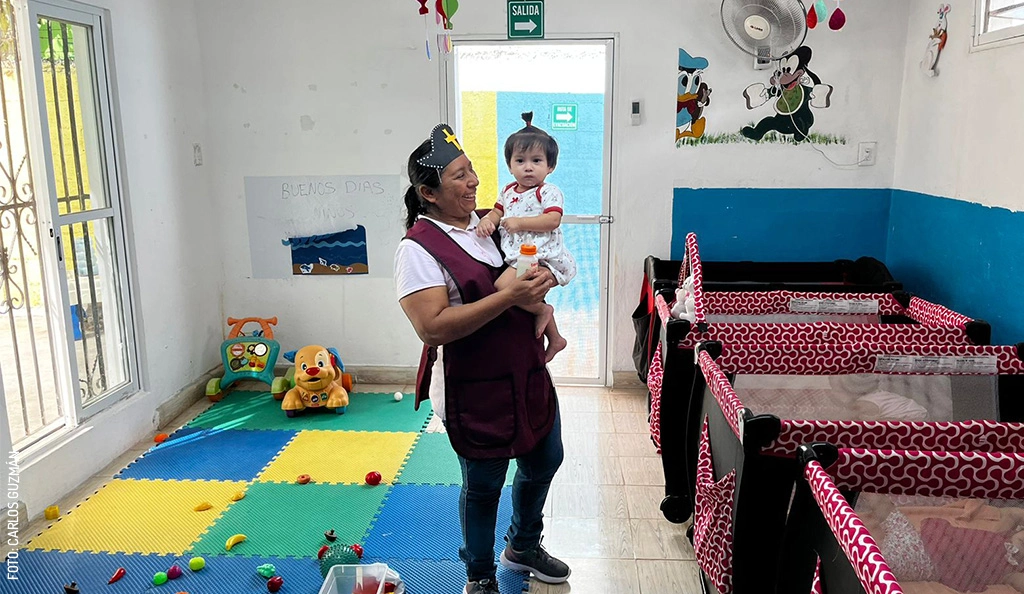
Volunteering in Yucatán: Give Your Best in 2026
Make volunteering one of your most important goals for 2026. Check out this list of associations in Mérida that will be the happiest for your support.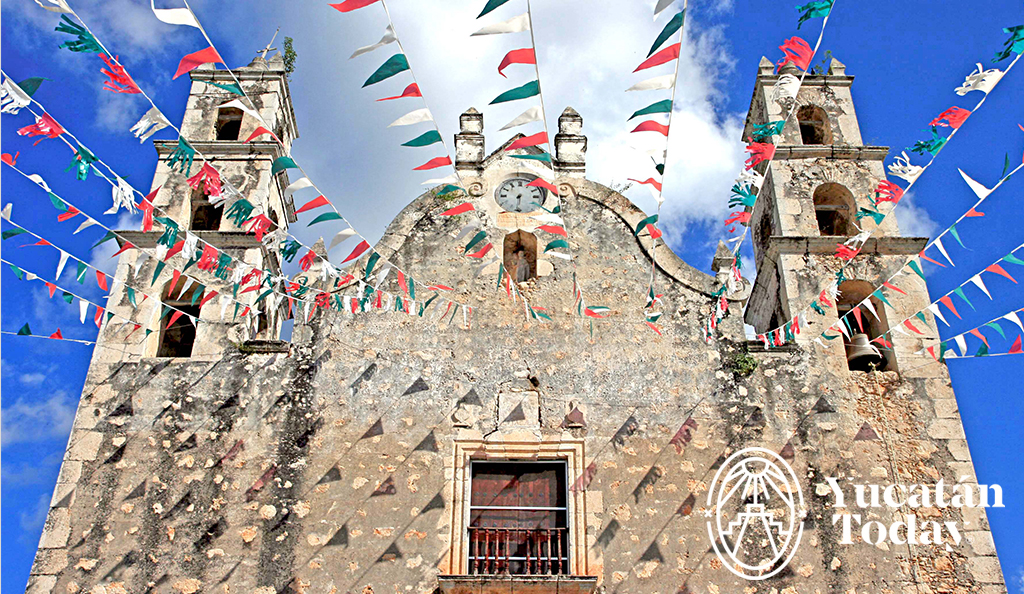
Convent Route
More enticing than ever, The Convent Route is a day trip that will take you somewhat off the beaten path and into the heart of the Yucatán....